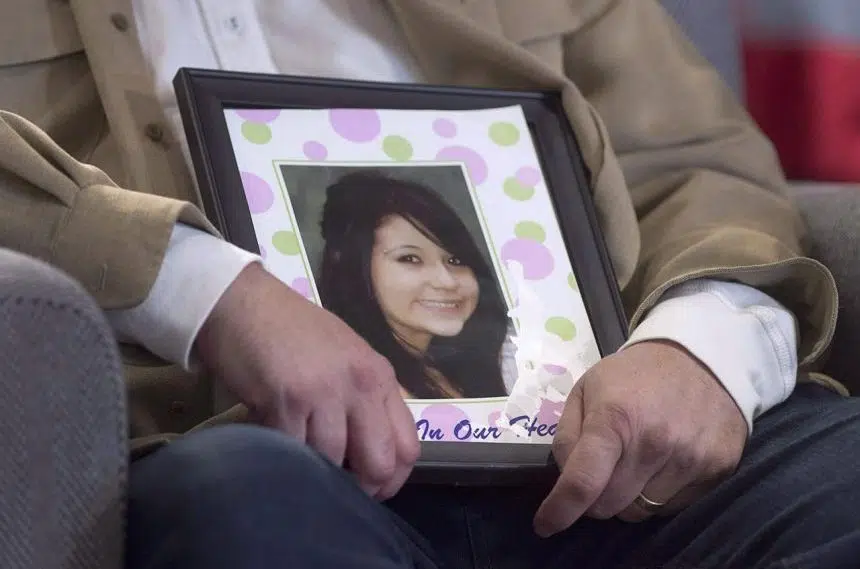OTTAWA — The troubled national inquiry into missing and murdered Indigenous women and girls is formally asking for another two years and more money to finish its work, saying more time is needed to hear from the hundreds of people still waiting to share their stories.
The inquiry, which has a budget of nearly $54 million, was originally scheduled to wrap up by the end of 2018, but chief commissioner Marion Buller has long warned more time and money will be necessary.
“We believe that the two years is required to do justice to our critical mandate for the safety and security of our women, Indigenous women and girls, and 2SLGBTQ (LGBTQ and two-spirit) people across Canada,” Buller said Tuesday after the commission submitted its formal request.
“The response from families, survivors and Indigenous communities has been overwhelmingly strong,” she added, describing the inquiry’s work as a “sacred responsibility.”
Fellow commissioner Michele Audette said the extension would require another $50 million.
The extra time and funding will allow the inquiry to conduct more valuable research into areas such as legislative reform, child welfare and policing and to canvass witnesses for recommendations on how to make Canada safer for all Indigenous women and girls, Buller said.
The commission will also use the extra time to reach out to more marginalized Indigenous women, including those who are homeless or incarcerated, she added.
“For the people who are waiting to hear from us, we want to hear from you. We want to know what happened to you or your lost loved one. We also want to hear your recommendations,” Buller said.
“I hold my hands up to all of you to honour you for your courage and your strength.”
The office of Indigenous Relations Minister Carolyn Bennett confirmed it received the inquiry’s request and that the minister would speak over the coming weeks with families, Indigenous partners, provincial and territorial officials and her cabinet colleagues about the possibility of an extension.
“The families of these women and girls need answers to the systemic and institutional failures that led to the murder of so many Indigenous women,” Bennett said in a statement.
“We are committed to getting them the concrete recommendations they have been waiting for and putting an end to this ongoing tragedy.”
The inquiry’s two-year timeline was established following pre-inquiry consultations, which heard that family members wanted prompt and concrete action, said a spokesman for Bennett.
Even with federal support, an extension is not guaranteed, as it would require agreement from the provinces and territories. An additional two years would extend the inquiry’s mandate to the end of 2020.
Buller said if an extension is denied, the commission would still meet its target date later this year, but that the final product would not be as in depth or compelling.
Ottawa established the national inquiry panel in late 2015 to examine the evidence behind a disproportionately high number of missing and murdered Indigenous women and girls and to give family members a chance to have their stories heard.
But the start date was pushed back by eight months, which the inquiry blamed on the federal bureaucracy in an interim report released last November.
Red tape hampered staff members from mobilizing across Canada, the report said, describing delays in setting up proper phone and internet access and purchasing office equipment and materials.
The request for an extension follows a period of criticism and unrest within the organization dating back to last year, which saw the unexplained departures of a commissioner and several of the inquiry’s directors. Families and survivors have also complained about a lack of communication.
Buller defended the inquiry’s work, saying a lot of important work has been done despite initial setbacks.
“Even though there were some bumps along the road, we have been able to make significant progress in shedding new light on the issue of missing and murdered Indigenous women and girls,” she said.
The commission has so far heard from more than 760 witnesses during nearly 250 public, in-camera and community hearings across the country. About 630 more have registered to participate.
— Follow @gwomand on Twitter
Geordon Omand, The Canadian Press











